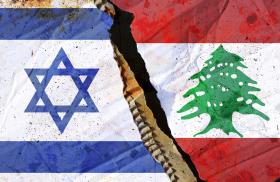There are three categories of countries in international politics: global powers that can afford to do nearly everything they want; small and weak states that need to latch on to large states to protect their interests; and middle-sized states, which, though they are not powerful enough to shape global affairs by themselves, wield international influence through alliances and by building regional constituencies.
For a long time, Turkey was in the category of small states, attaching its foreign policy unequivocally to that of the United States. Over the past decade, under the rule of the Justice and Development Party, or AKP, Turkey has graduated to the class of middle-sized states. On July 15, U.S. Secretary of State Hillary Clinton recognized this development, calling Turkey an "emerging global power." But what are the parameters of Ankara's middle-sized power status? Now that it is in a new league of states, should Turkey attempt life without America, or does Ankara still need Washington?
Turkey not only has NATO's second largest military, but also is a new member of the G-20. What is more, thanks to the AKP's activist foreign policy, Turkey wields influence across many regions, from the Middle East to the Eastern Mediterranean, and Central Asia. Ankara stands at a historic juncture and possesses the ability to shape politics beyond its borders if it pays attention to the two following parameters.
First, Turkey can maintain its newfound global role only if it builds international constituencies. To this end, Ankara needs to project its political message and soft power in a consistent way. If Ankara vacillates overseas, its newfound international influence will wane.
So far, Ankara has struggled in this regard. Take China, for example. Turkey voiced strong criticism of the Chinese crackdown against the Uyghurs in early July, but has avoided taking a stance on the Tibet issue. Ankara will need to stand for human rights for both Muslim Uygurs and Buddhist Tibetans alike if it is to become a credible force in world politics. In this regard, Turkey should not only guard its existing constituencies, such as the Uygurs, but also reach out to and build new ones, such as the Tibetans. As a middle-sized power in global politics, Turkey needs to prove that its heart beats for Muslims and non-Muslims, and Turks and non-Turks, with the same strength.
Along the same vein, Turkey needs to project its soft power consistently in the Middle East. In this regard, too, Ankara has not had a perfect record. When Hamas emerged victorious in the 2006 Palestinian elections, Ankara voiced support for Hamas' electoral victory in the name of democracy. Yet in the aftermath of the June 2009 elections in Iran, amidst widespread allegations of vote rigging, Ankara did not side with democracy, but instead congratulated Ahmadinejad on his "electoral victory" even as Iranians were being shot in the streets of Tehran. If Turkey aims to wield influence in the Middle East by promoting itself and its values, such as democracy, it should do so for both Palestinians and Iranians.
The second parameter to ensure Turkey's middle-sized power status is maintaining an alliance with a global power. This will help Ankara protect its interests in areas of the globe beyond its reach, as well as in organizations where it could be dwarfed by larger powers.
This is where Ankara's relationship with the United States comes in. Fortunately, Turkey no longer is a foregone conclusion in Washington's mind. But Ankara's newfound importance in Washington should not be interpreted as the time for Turkey to conclude its long alliance with America. Like all middle-sized countries, Turkey can protect its interests better when allied with a global power. Take Turkey's European Union, or EU, process, for instance. Turkey would not be in accession talks with the EU today if not for Washington's continued backing.
In a similar fashion, Washington's assistance to Turkey matters inside NATO. Ankara's position in this alliance, which includes other middle-sized powers larger than Turkey, would be weaker if it were isolated. Turkey's ties to Washington, in this respect, are essential. Washington's motto in NATO, "Never leave the Turks alone," best explains the United States' utility to Turkey in NATO, as does Turkey's access to U.S. military technology, a perk of its NATO membership.
To be sure, the benefits of Turkey's relationship with the United States are mutual. Just as Turkey profits from its relationship with a global power, Washington needs the new Turkey in many places, such as Afghanistan and the Middle East. This new rapport requires adult thinking on both sides, and will soon be tested as Washington withdraws troops from Turkey. This test will happen regardless of whether or not the U.S. pulls its military out of Iraq through Turkey, and the question is whether the two sides will act as mature partners.
Far from looking for a life without America, Turkey should be looking for an upgraded relationship with the United States. Turkey has become a middle-sized power, size matters, and Ankara's challenge is to step up to the plate.
Soner Cagaptay is a senior fellow and director of the Turkish Research Program at The Washington Institute.
Hurriyet Daily News
